For 24 years, swimming has been the focal point of Rikke Møller Pedersen's life. Quite literally. From waking up at 5:00 AM for the first swim practice before work/school, followed by another swim training session, and then going to bed early before 10 PM. Over and over again.
Fortunately, this dedication has borne fruit in her later years as a swimmer to a degree that no recent Danish swimmer has achieved. Specifically, setting the overwhelming world record in 2013 with a time as fast as 2:19.11 in the 200 m breaststroke.
We'll dive into this further later.
Interview with Rikke 24 years after the first splash
Here at Watery.ie, we've been following Rikke Møller Pedersen's achievements in the water with great inspiration for several years. That a Dane can achieve such incredible results in one of the world's most popular sports speaks to something extraordinary.
Now, at Watery.ie, we've been given an exclusive opportunity to go behind this record, but most importantly, to go behind the person who set the record, namely Rikke.
In the video below, Rikke talks about how she suddenly switched from backstroke to breaststroke during the 2004 European Junior Championships, why Rikke believes she became exceptionally good, and most importantly, her best advice for future super swimmers. The advice she wishes she had known when she started competitive swimming 15 years ago.
Rikke Møller Pedersen's Swimming Career – Briefly Told
Rikke's swimming career started in Odense, specifically at the Frem Odense swimming club. Rikke took her first strokes in the water at the age of 6 in 1995. At that time, it was far from competition and fast swimming, but rather focused on learning how to swim. We all start somewhere, right?
However, Rikke quickly showed a talent for swimming fast in the water. So, at the age of just 15, she made her debut on the Danish senior national swimming team – even though she was still a junior. This happened somewhat by chance, as the 4×50m medley relay suddenly needed someone for breaststroke for the European Championships on short course in 2004. At that time, Rikke was a backstroke swimmer, but to everyone's surprise, including her own, she swam the breaststroke leg of the relay extremely fast. And ever since that experience, Rikke has been a breaststroke swimmer.

Watery training swimming goggles - Raven Active - Black/blue 1.0
4.71/5
Based on 112 reviews
In the following years, Rikke became a regular part of the Danish senior national team, and like many other athletes, the Olympics became the ultimate goal. The next one was the 2008 Beijing Olympics, but, to Rikke's great disappointment, she narrowly missed qualifying for the Games. Several other top swimmers like Lotte Friis (who, by the way, won a bronze medal at those Games) and Jeanette Ottesen also didn't make it. But Rikke didn't make it in this instance.
However, Rikke's big international breakthrough came the following year in 2009 at the European Short Course Championships. Rikke Møller Pedersen returned from this competition with six European records and a European champion title in the 200m breaststroke. If it hadn't been for her disqualification on the shorter distance, her medal haul would likely have been even more significant. Immediately after these results, Rikke also won the national award for “Discovery of the Year” from Politiken and the Danish Sports Confederation, setting expectations for a glorious (Olympic) career.
GET A DISCOUNT CODE WITH 10% OFF
The discount code can be used by all new customers on all products on the website, including the products recommended here in the article.
What are you waiting for? Get more out of your time in and on the water!
The reason Rikke's breakthrough came at that moment lay with the newly appointed Danish national coach, Paulus Wildeboer, who took over after Mark Regan following the 2008 Olympics. Rikke asked Paulus shortly after his appointment, “Tell me, do I have talent or not, because if I don't, I'll quit?” Half a year, about 6 months before the European Short Course Championships, Paulus gave his assessment: “You definitely have talent.” As a result, Paulus recommended that Rikke drop her plans to go to the USA on a swim scholarship and instead train under him at the national training center in Copenhagen. Far away from her hometown of Odense. However, this move proved crucial for Rikke's later glorious swimming career.
Fortunately, Rikke's triumphs didn't end with the European title. In 2010, Rikke won both bronze and silver at the European Long Course Championships in the 200m and 100m breaststroke, respectively, and later that year, she won bronze in the 200m breaststroke at the Short Course World Championships.
Over the next few years, Rikke became a regular part of Denmark's medal haul – a haul that had previously belonged solely to other fast Danish female swimmers like Lotte Friis and Jeanette Ottesen. But unlike the two aforementioned Danish swimmers, no one expected Olympic medals from Rikke at the upcoming 2012 London Olympics. That was expected of Lotte and Jeanette.
Without drawing any conclusions about what this pressure did to the other two Danish swimmers (who returned without medals), the 2012 Olympics turned out to be Rikke's eye-opener. Rikke surprised everyone, including herself, by swimming her way to a 4th place finish in the 200m breaststroke. She was seeded 17th, outside the semifinals before the race. In that Olympic final, she even set a Nordic record with a time of 2:21.65 minutes.
The aforementioned final at the Olympics took place on August 2, 2012. Just 364 days later, on August 1, 2013, Rikke Møller Pedersen would truly make her mark in Danish sports history. Specifically, with the only Danish world record in a long course Olympic discipline in recent times.
However, the year leading up to that Olympics required adaptation. Her successful partnership with Paulus Wildeboer came to an abrupt end immediately after the Olympics when a new Danish national coach took over in early 2013, namely the Australian Shannon Rollason. A very different coach with a less dictatorial and resolute approach to training than his predecessor.
Nevertheless, they reached the World Championships together. Rikke had already qualified at the annual Danish Open 2013, setting a new European record, significantly faster than the Olympics just a year prior, with a time of 2:20.53 minutes. Thus, Rikke entered the World Championships as the favorite.
Rikke cemented that favorite role already in the semifinals, where she swam the famous world record home to Denmark. She did it with a time as fast as 2:19.11 seconds, with just 64 arm strokes. That was half a second faster than the previous world record set at the Olympics the year before by Rebecca Soni.
Then came the final the next day. The one where Rikke would swim to her first world championship title – at the very least, as the world record holder. Unfortunately, it didn't go that way. A Russian swimmer named Yelija Efimova surprised Rikke in the final. However, Efimova didn't swim faster than the just-set world record. Nevertheless, Rikke's dream of becoming a world champion was shattered, and she had to settle for silver. It later came to light that Efimova may have been doping during this World Championships – at least she was in the years that followed. So, Efimova likely took the world championship title from Rikke Møller Pedersen on a doping basis.
This was exactly the case six months later at the European Short Course Championships. This time, it was Rikke and the Danish swimmers' turn to compete on home turf as the championship took place in Boxen arena in Herning. Here, on home soil in front of more than 15,000 Danish spectators, Rikke was once again defeated by Efimova in both the 200m and 100m breaststroke, after which Efimova was disqualified for doping in the months that followed. So once again, Rikke did not receive the recognition and praise she (likely) deserved under legitimate circumstances.
Now we're in 2014. The European Long Course Championships took place in Berlin. This time, Rikke had to redeem herself for the slight disappointment in Herning, and that's exactly what happened. Rikke won gold in both the 100m and 200m breaststroke, as well as in the 4×100m medley relay. A significant redemption leading up to the upcoming World Championships on long course the following year.
At the World Championships, Rikke was aiming to win the world championship title she had missed two years earlier. And maybe break her world record again? Unfortunately, that's not how it turned out. Rikke had to settle for 3rd place and a bronze medal in the 200m breaststroke.
Then came the Olympics again, this time Rikke's second participation. This time with high expectations of securing the only medal missing from her collection: an Olympic medal. And there were no more shots in the chamber, as four more years in the sport at the absolute top level for the then 27-year-old swimmer were not possible. Unfortunately, it was largely another disappointment. At least in Rikke's individual races, as she only just managed to make it to the final in the 200m breaststroke, finishing far from the medals once again. The same was true for the other two Danish swimming queens, Lotte Friis and Jeanette Ottesen. But then came the last day when Danish swimmers were still without medals.

Watery Elite swimming goggles - Poseidon Mirror - Pink/silver
4.66/5
Based on 104 reviews
And then, a miracle happened. First, Pernille Blume won gold in her favorite event, and it seemed like all of Denmark rode the wave of her success. Finally, in the 4×100m medley relay with Rikke Møller Pedersen swimming the breaststroke leg, Denmark could celebrate a huge relief. The Olympic medal was secured in a very tight final, just one-tenth of a second from silver. Thus, Rikke got the medal she was missing – even though it didn't come in the individual event and the carat she probably hoped for.
Then it was time to call it quits. By Rikke herself. This happened in January 2019, after several months of consideration.
With big questions like, “Am I just giving up?” and “Shouldn't I see what's waiting around the next corner?” filling her mind, the decision was still to retire. After 24 years of the smell of chlorine and 15 years among the absolute world elite.
Now, six months after her swimming career ended, a new job outside the pool awaits her as a sports host on TV2. And a side job as one of the founders of Vandakademiet, where the goal, together with swimming colleagues Jeanette and Lotte, is to pass on the experiences of joy, challenges, enthusiasm, and setbacks in swimming to the next generation of top swimmers from Denmark.

Bio – Rikke Møller Pedersen
- Born on January 9, 1989
- Started swimming at the Frem Odense swimming club
- World record holder in the 200m breaststroke with a time of 2:19.11 seconds
- Olympic medalist at the 2016 Olympics in the 4×100m medley relay (also a European record)
- Has won 9 World Championship medals and 20 European Championship medals
- The second-most successful Danish athlete ever with 29 international medals
- In a relationship with sailor Nicolaj
- Specializes in the breaststroke swimming style in the long distance, 200 meters
Become as good at breaststroke as Rikke
Rikke is the world record holder in the 200m breaststroke. That means the fastest ever. However, this is not primarily due to large muscles in her arms and legs. It is instead a result of an almost tireless training of tiny details over 20 years. The same breaststroke exercise again and again and again.
That's why Rikke Møller Pedersen can complete the 200m breaststroke with just 64 arm strokes when she set her world record. In comparison, her direct competitor, Yulija Efimova, used a whopping 89 arm strokes. This demonstrates unparalleled efficiency in both her legs and arms but also, most importantly, minimizing resistance.
Rikke explains all of this and more in the video below. First and foremost, she provides her top 5 qualities for swimming fast and efficient breaststroke, then her 3 favorite breaststroke exercises, and finally, she gives her take on why she swims breaststroke so fast.
Would you also like to read about Lotte Friis and Jeanette Ottesen?
At Watery, we have entered into a strong collaboration with both Rikke Møller Pedersen, whom you've just read about, Lotte Friis, and Jeanette Ottesen.
In fact, we have written equally comprehensive reports about the careers of the latter two. And I must say that they are AT LEAST as exciting (and you will also find unique video stories and tips and tricks for your swimming).
You can find and read about Jeanette Ottesen [here](insert link to Jeanette Ottesen's report).
You can find and read about Lotte Friis [here](insert link to Lotte Friis's report).
I would be really happy if you had 30 seconds to spare and could leave a comment right below with your thoughts on our collaboration with Lotte, Jeanette, and Rikke. Maybe your opinion on our videos, and perhaps what we could have done better.
In conclusion, all that's left to say is: Thank you for reading all the way here. I hope you found it exciting and learned one thing or three about Denmark's world record holder.
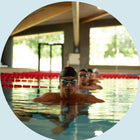
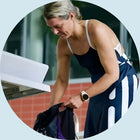
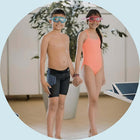
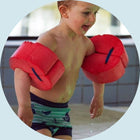
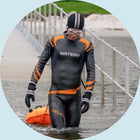
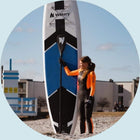
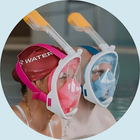
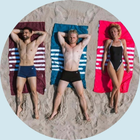
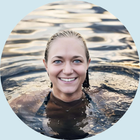

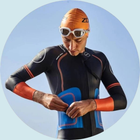

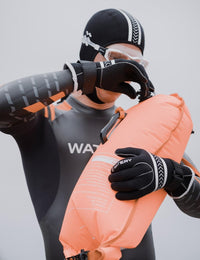
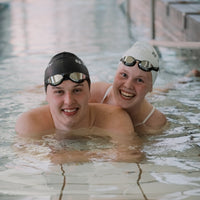




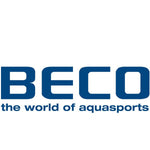








![[FREE GIFT 1] Watery earplugs](http://watery.ie/cdn/shop/files/activeearplugs-blue-1-klartilhjemmeside_1_2_d66304d0-3b01-490e-ac51-8cff659ba150.jpg?v=1768392135&width=200)
![[FREE GIFT 2] Watery Anti-Fog Spray](http://watery.ie/cdn/shop/files/1_8fa9a41d-737d-48b9-8976-59046b5d7f6a.jpg?v=1764791464&width=200)
![[FREE GIFT 3] Watery waterproof mobile case - Storm - Black](http://watery.ie/cdn/shop/files/Designudennavn_16_58bb54e1-1352-48e2-886e-468370189acc.png?v=1768392134&width=200)
![[GRATIS GAVE 4] Watery waterproof bum bag - Talia - Blue](http://watery.ie/cdn/shop/files/WateryTaliaBumBag-Blue_1_5cc1b961-5fe7-49d7-8e3f-f894e48765a4.jpg?v=1768392135&width=200)